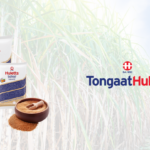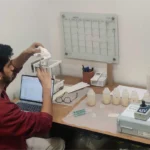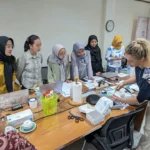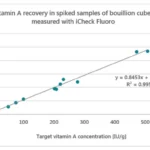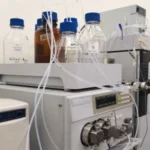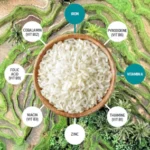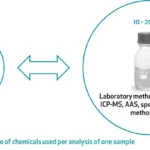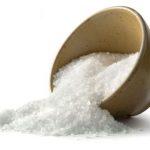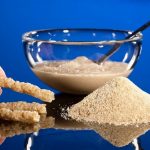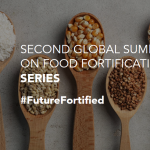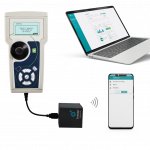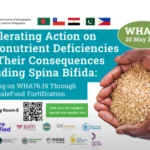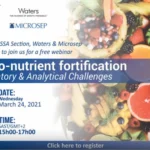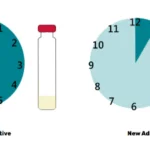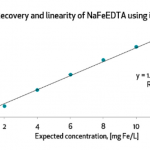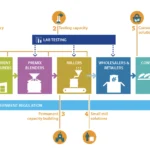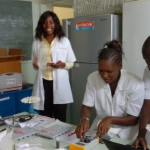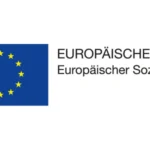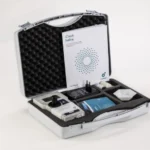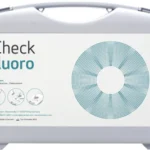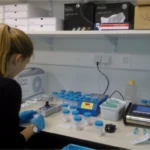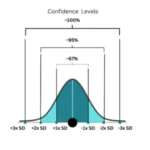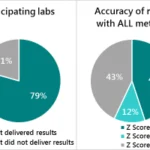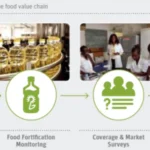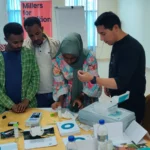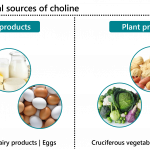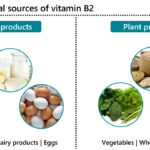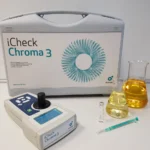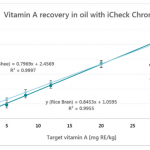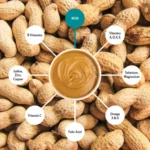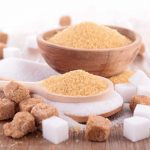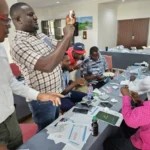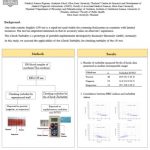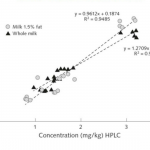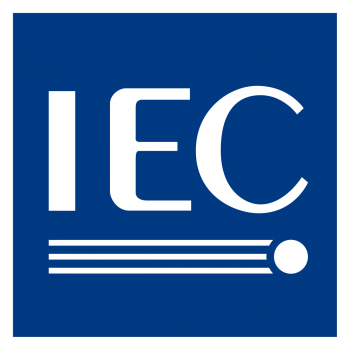Vitamin A deficiency remains a public health concern in Mozambique. The Mozambique Micronutrient Survey (2012–2013) revealed that nearly 1 in 5 children under five lacked sufficient vitamin A, with the highest rates seen among toddlers aged 12–23 months. This deficiency doesn’t occur in isolation. The survey showed a link between Vitamin A deficiency and anemia, a condition that already affects more than two-thirds of children in this age group. Together, these deficiencies weaken immunity, slow growth, and increase the risk of illness and death. Anemia still impacts 4 in 10 women, posing risks for both maternal health and newborn survival (1).
This article highlights Mozambique’s national fortification program, where Tongaat Hulett plays an important role alongside BioAnalyt’s iCheck Fluoro, a trusted monitoring tool that helps ensure fortified sugar meets vitamin A standards. Tongaat Hulett is a major agribusiness operating across South Africa, Zimbabwe, and Mozambique, with a significant share of the Mozambican sugar market (over 50%). In this piece, we focus on Mozambique, where vitamin A deficiency remains a serious public health challenge, while a forthcoming article will examine the company’s activities in Zimbabwe.
Mozambique’s National Response
Mozambique has one of the highest burdens of micronutrient deficiencies in sub-Saharan Africa. By the mid-2010s, studies showed that a lack of vitamin A was undermining child survival rates and public health progress. In response, the Government of Mozambique introduced a mandatory food fortification decree in 2016–2017, requiring fortification of staple foods such as: sugar, maize, wheat flour, and edible oil [2].
The national program has been supported by a coalition of actors: development partners such as; GAIN, the World Food Programme and UNICEF, the national sugar industry, and Mozambican regulators [3]. Together, they created an oversight system that ensures fortified foods reach both urban and rural households. This model mirrors broader efforts across Africa, where staple food fortification has become a key public health strategy [3]
Despite progress, challenges remain. Cheaper imported sugar often bypasses fortification standards, undermining local industry and threatening program consistency [4]. Strengthening customs checks and regional trade agreements is increasingly seen as essential to maintain the integrity of Mozambique’s efforts.
Tongaat Hulett’s Role in Scaling Fortification
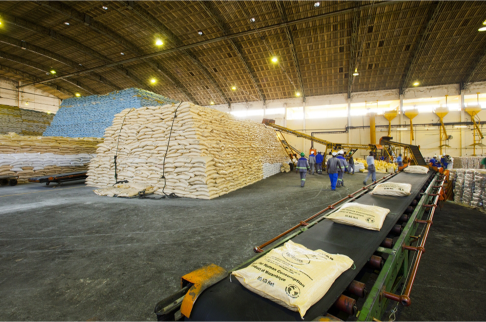
As the country’s one of the largest sugar producers, Tongaat Hulett has been at the centre of the sugar fortification rollout. Its Xinavane and Mafambisse mills were upgraded to integrate sugar fortification, monitoring and quality control [5].
The company worked closely with government regulators to standardize fortification practices and align production with national requirements. This coordination has helped raise compliance across the sector. While imported sugar remains a challenge, Tongaat Hulett’s commitment to fortification ensures that the majority of domestically produced sugar meets the required standards.
Testing for Trust with iCheck Fluoro
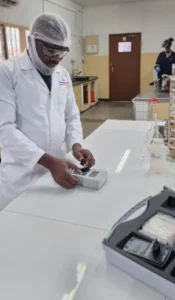
Fortification is only as strong as the systems that verify it. Since 2017, Tongaat Hulett has relied on BioAnalyt’s iCheck Fluoro to measure vitamin A content in sugar. Testing is conducted two to three times per shift and again after storage, ensuring accurate dosing and consistent mixing.
“Results consistently confirm correct dosing and even mixing. We have never received complaints about fortified sugar since starting this testing regime” says Candido Malemia, Lab Manager Assistant at Tongaat Hulett.
Initial training on iCheck was delivered by BioAnalyt, with additional support provided by a Millhouse, including guidance on premix handling and integration into existing lab routines.
Safeguarding Quality and Accuracy
Maintaining standards over time is just as important as initial rollout. Tongaat Hulett’s production runs on four daily shifts, with fortification checks embedded throughout operations. Brown sugar, the country’s main consumer product, is consistently fortified.
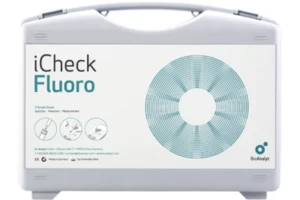
Oversight is supported by Mozambique’s National Sales Authority (DNA), which coordinates distribution of sugar in Mozambique. Tongaat Hulett shares their fortification data directly with the regulatory authorities. The most recent government inspection in 2024 confirms the ongoing compliance.
To ensure reliability, iCheck results are cross compared between Tongaat Hulett’s factories. Devices are calibrated with the Fluoro Standard, a consumable critical for accuracy. Sustained access to these Standards remains a priority for both producers, as it ensures results remain trustworthy.
This system of checks and balances, internal quality assurance, combined with external government oversight, builds confidence in fortified sugar and helps ensure that Mozambique’s population receives the health benefits promised by the fortification program.
Why Fortifying Sugar Matters
Sugar fortification is more than a technical process; it is a strategic public health intervention. With near-universal consumption in Mozambique, even small amounts of fortified sugar help close nutrient gaps that would otherwise leave children at risk.
By embedding fortification into a household staple, Mozambique is addressing hidden hunger in a cost-effective, scalable way. The approach aligns with global nutrition goals, where food fortification is recognized as one of the most impactful strategies to prevent micronutrient deficiencies.
Read more about sugar iCheck Fluoro measuring vitamin A in sugar.
Read the whitepaper on Rapid Measurement of Vitamin A in Fortified Sugar with iCheck Fluoro
References
- Ministry of Health (Mozambique), Helen Keller International, & Global Alliance for Improved Nutrition. (2017). Mozambique micronutrient survey 2012-2013: Final report. Maputo, Mozambique. https://groundworkhealth.org/wp-content/uploads/2021/04/Mozambique-Micronutrient-2012-Survey-Report_170705_FINAL.pdf
- Government of Mozambique. (2016). Mandatory Food Fortification Decree. [Referenced in evaluation of the coverage and benefit incidences of food fortification in Mozambique].
- International Policy Centre for Inclusive Growth (IPC-IG). (n.d.). Evaluation of the coverage and benefit incidences of food fortification in Mozambique: Executive summary. Retrieved from https://ipcid.org/sites/default/files/pub/en/RR33_Executive_Summary_Evaluation_of_the_Coverage_and_Benefit_Incidences.pdf
- Food Business MEA. (2023, July 6). Tongaat Hulett in Mozambique blames cheaper sugar imports on depressing situation in local industry. Retrieved from https://www.foodbusinessmea.com/tongaat-hulett-in-mozambique-blames-cheaper-sugar-imports-on-depressing-situation-in-local-industry/
- Tongaat Hulett. (2017, December 4). Vitamin A sugar fortification launched in Mozambique. Retrieved from https://www.tongaat.com/wp-content/uploads/2018/10/Comprehensive-Information-Nov-2017.pdf



